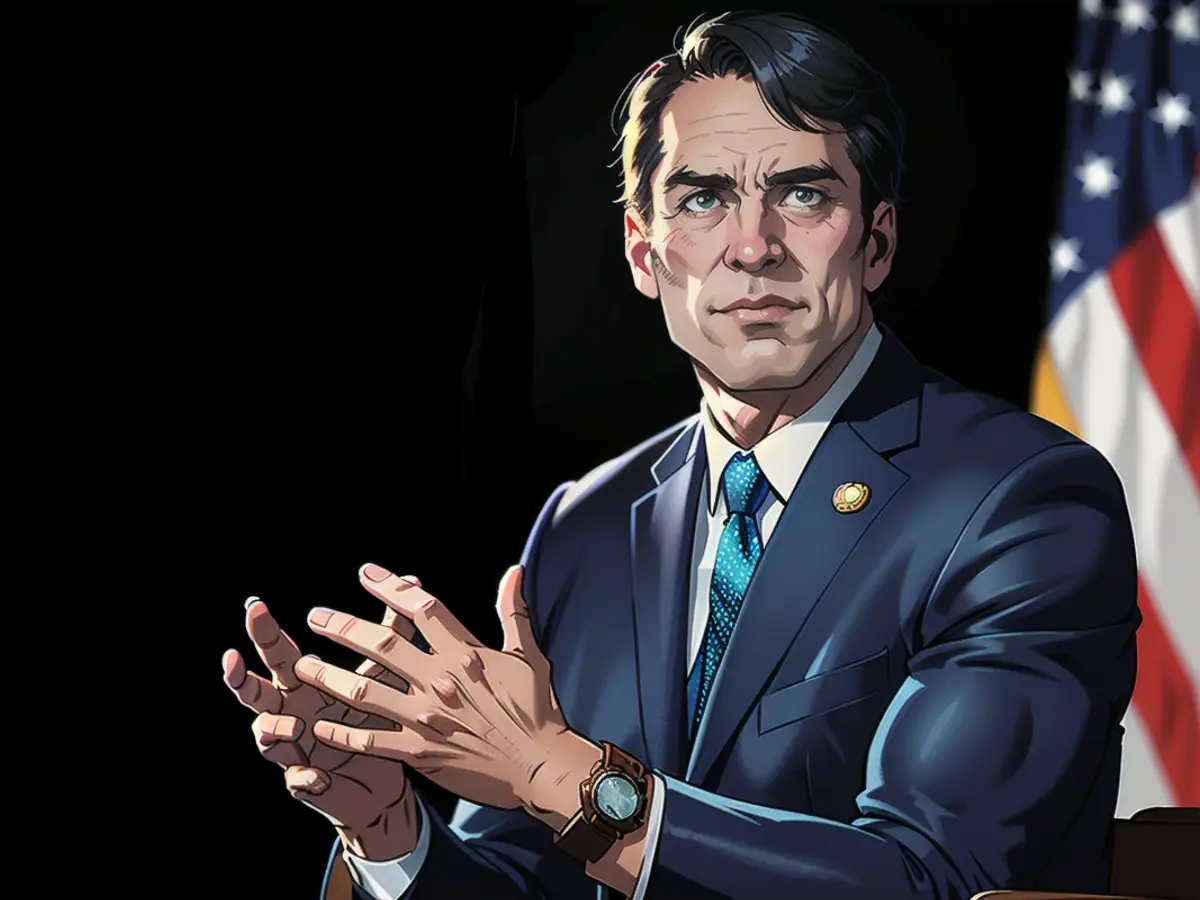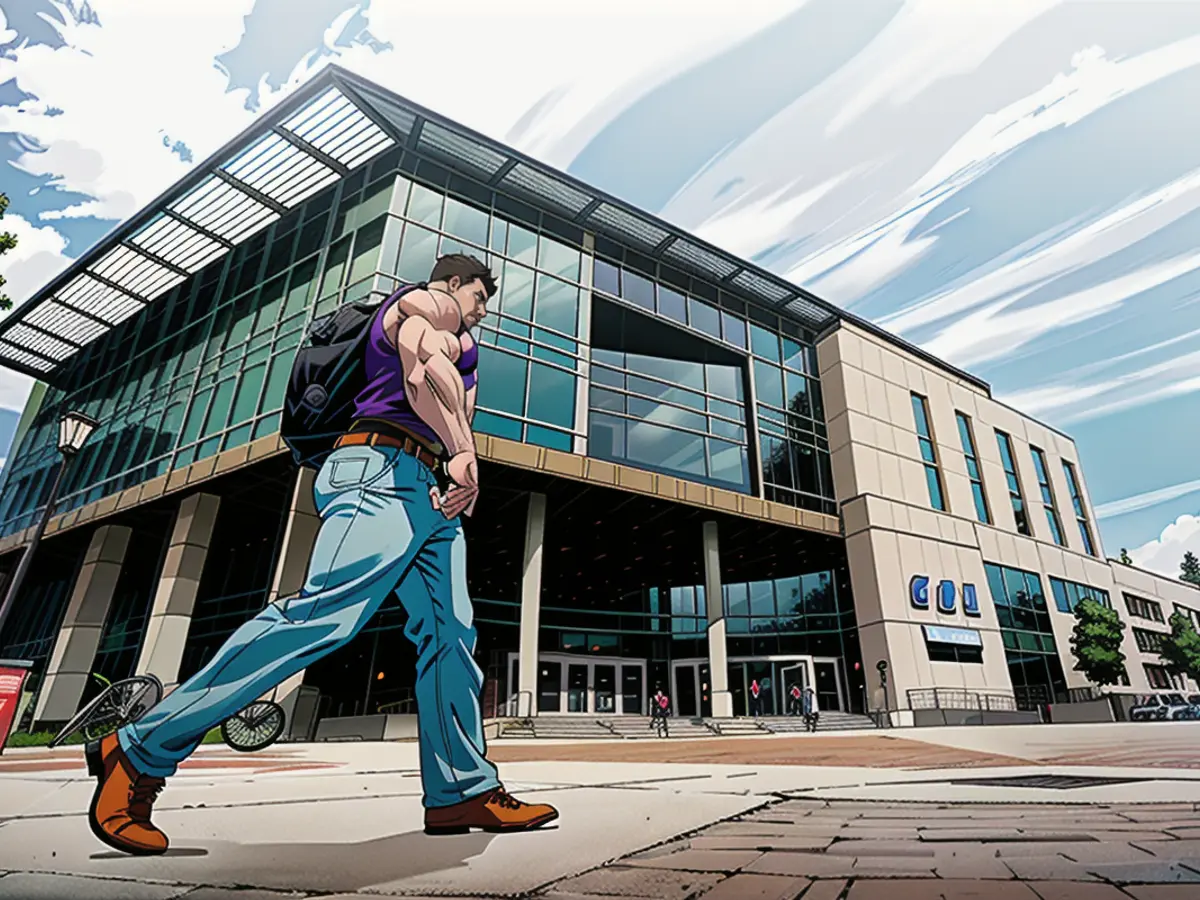Two Virginia colleges face criticism after reversing their decisions to mandate diversity courses.
Vergamini, a Ph.D. student and lecturer at Virginia Commonwealth University, participated in a panel of professors and students developing a racial sensitivity course. This program was intended to inform students about the history of slavery in the USA, the Jim Crow period, the racism faced by Asian Americans, and the resurgence of Confederate monuments, particularly in Richmond - the original Confederate capital.
According to Vergamini, the course was designed to benefit students of all ethnic backgrounds.
"As a caucasian woman, I enjoy numerous privileges. Instead of supporting these systems, I want to change them. My privileges should be the fundamental human rights for everyone," she remarked.
The committee prepared to introduce this course as a compulsory part of the standard education for first-year students. Each student was required to take a three-credit class from a list of approved courses, the teachers told CNN.
However, in May, just before the course obligation was due to commence, the university's Board of Visitors, composed of 16 members appointed by Virginia's governor, voted down the compulsion. This was reported in a statement from the university.
The board members claimed that the university remained committed to "maintaining academic freedom while providing students with flexibility and autonomy in their academic journeys."
The rector of VCU's Board, Todd Haymore, said in the statement, "The discussion relates exclusively to the graduation mandate, not the subject matter of our courses."
Around the same time, another Virginia university, George Mason, announced its postponement of a "Just Societies" program focusing on diversity until 2025-26 academic year.
In a letter to his associates, Kenneth D. Walsh, GMU's interim executive vice president and provost, stated, "The difficulty of reaching a consensus on this issue illustrates the divisive nature of the subject. The purpose of the 'Just Societies' courses is to empower students to explore and address diversity in their communities."
Nevertheless, the compulsory course at VCU and the postponed requirement at GMU have impressed opposition from educators and students who believe the curriculum is crucial to establishing students' comprehension about the history of racism in the United States.
"If the requirement is removed, many students may not gain this knowledge," Vergamini informed CNN.
Diversity, equity, and inclusion programs and curricula in Virginia colleges have received considerable criticism from legislators this year. Since 2023, 14 bills designed to target DEI programs in colleges have been enacted, according to a count by the Chronicle of Higher Education.
In 2022, Youngkin's administration demanded VCU and GMU provide syllabi for their diversity-related classes "to provide more clarity about what would be required, as these materials were not accessible online," Christian Martinez, a spokesperson for Youngkin, wrote to CNN in an email.
The governor's office has received "complaints from members of the Boards of Visitors, parents, students, alumni, and community members about proposed mandatory courses for undergraduate students," Martinez revealed.
Youngkin, who has been extremely critical of DEI, prohibited the teaching of "divisive concepts, including critical race theory" in K-12 schools in 2022. He also defended Martin Brown, his administration's chief diversity, opportunity and inclusion officer, when he declared "DEI is dead" - amid calls for his resignation.
Universities become a battleground in culture wars
Mignonne Guy, a VCU professor in the Department of African American Studies, recounted that President Eduardo Miranda requested her to design a racial proficiency course in 2019.
Guy elaborated that she set up the Committee on Racial Equity professors group and the Committee on Racial Equity Student Advisory Group to come up with standards for courses that would apply to all undergraduate students at VCU.
The standards included teaching about "the historical and current structures of racialized power and privilege, including whiteness," and the "social institutions, policies, and practices that contribute to and legitimize racism."
Guy argues that knowledge of these issues is fundamental to addressing systemic racism, defined as policies and practices resulting in unequal treatment of individuals based on their race.
Cancelling the requirement for this course effectively communicates that "this is not a priority," stated Guy.
"It wasn't about updating students' opinions, it was about providing them with the opportunity to analyze their country in a more unbiased way and create solutions for a more inclusive environment," Guy elaborated.
Anesia Lawson, a VCU student and president of the campus' NAACP chapter, revealed that she and other students attended the board meeting where the vote took place and were disheartened by the decision.
Lawson commented that the committee invested a lot of effort and time to devise this program, leading to disappointment when the board voted against imposing it.
She expressed how heartbreaking the situation was. Lawson, while reviewing the racial literacy curriculum, felt it was valuable as it taught students about systemic racism's intersections with sociology, sciences, leadership, and law, which would help her in her future career as a civil rights lawyer.
"We see things from different perspectives," she said, adding that not educating people about race and racism is detrimental to society.
Melissa Broeckelman-Post, a professor and Basic Course Director in George Mason's Department of Communication, explained that these "Just Societies" courses aim to prepare students for the contemporary world because employers and accreditors demand such learning outcomes.
Broeckelman-Post also highlighted that faculty members were worried about certain board members meddling with the curriculum development process, which they considered to be under their control.
While supporters of diversity, equity, and inclusion view courses such as those at VCU and George Mason as vital for comprehending racial dynamics in the U.S., critics who are against DEI consider these classes "indoctrination."
Former U.S. Ambassador Robert Pence, appointed to the GMU Board of Visitors by Governor Youngkin, expressed similar reservations during a May 2 board meeting, questioning the need to make these courses compulsory.
"What are you scared of? Do you think people won't take the course if you don't push it on them? That's your fear," he said.
In his letter, Walsh mentioned that the courses in the "Just Societies" curriculum would be available the upcoming year and that the delay would only affect the decision on whether they're mandatory.
"We need to consider that the concerns raised by these groups make our case for this requirement less persuasive to those audiences than it is to our students and faculty," Walsh wrote, adding that the level of discord on this topic necessitates more efforts to mediate the differing opinions.

Read also:
The university's decision to revoke the compulsory diversity course has led to concerns among students and educators, with Vergamini stating, "If the requirement is removed, many students may not gain this knowledge." Moreover, with 14 bills targeting DEI programs in Virginia colleges enacted since 2023, criticisms against these programs have become a significant issue for US universities, including the 'us'.








